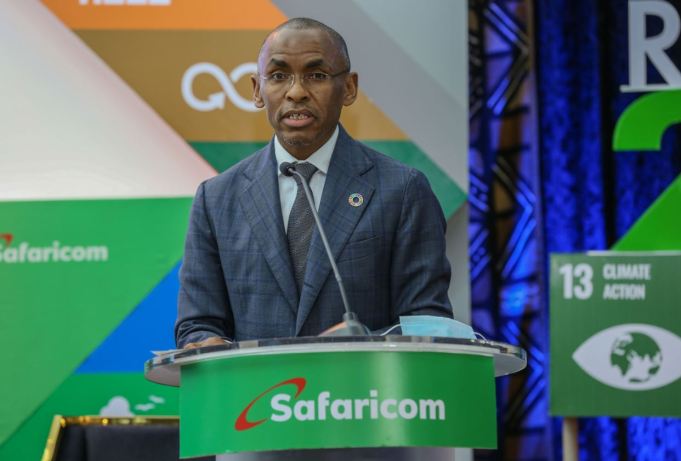More than half of Safaricom’s executives have quit the telco over the past two years, allowing CEO Peter Ndegwa who replaced Bob Collymore in April 2020 to build his own team.
Eight executives occupying the 11 C-suite seats at Safaricom have left during the period under review for roles outside the firm or at British Vodafone and South Africa’s Vodacom—which have a combined 40 percent stake in the Kenyan company.
This has allowed the firm to tap new skills in Kenya’s evolving telecoms market and shape the management in line with Mr Ndegwa’s strategy that seeks to maintain Safaricom’s profit trajectory.
The changes in the corner office come at a time Safaricom’s mobile money platform M-Pesa has overtaken voice to become the biggest revenue earner for the company, underlining the growth of the financial service that was launched in 2007.
Top executives who have exited Safaricom include Sylvia Mulinge (chief customer officer), Debra Mallowah (chief business development officer), Joseph Ogutu (chief special projects) as well as Kris Senanu and Rita Okuthe, who were chief enterprise business officers.
“I think when you are from outside you might see change and think a lot is driving it but many times, change in leadership is an evolving thing. It is not usually something that is necessarily planned,” Mr Ndegwa told the Techknow Africa (Network) in reference to the C-suite turnover.
“It is both looking for new skill sets as the strategy changes and people moving on with their careers, and promotions. Of course, you need new skills, if the vision has changed like I talked about business development skills, M&E, strong financing skills people like Michael Mutiga have come in.”
Safaricom tapped Mr Mutiga for the chief business development officer’s role from Citibank where he served as the managing director, a rare move of a business head taking a role beneath the CEO in another firm.
A former Absa executive, Mr Mutiga has been with Citibank for 15 years, serving in various senior local and regional management roles.
His brief at Safaricom includes strategy and acquisitions, underlining the telco’s quest to get a larger share of the financial services market.
Safaricom is seeking regulatory approvals to launch insurance, unit trust and savings products as it races for a larger piece of the financial services market and taps more earnings from mobile money platform M-Pesa.
The telco is keen to enter new ventures as voice declines.
Safaricom forecasts M-Pesa will account for half of its sales in the coming years as revenues from voice and SMS flatten. The service overtook voice in 2021 to become the single-largest business line after it posted sales of Sh107.7 billion or 36 percent of the telco’s Sh298 billion total revenues.
Safaricom’s growth strategy hinges on widening M-Pesa offerings and bolstering its data business to offset a fall in revenue from mobile calls amid a saturated market.
Besides Mr Mutiga, Safaricom hired Stephen Kiptinness as chief corporate affairs officer, replacing Steve Chege who took a similar role in South Africa’s Vodacom—which owns 35 percent stake in Safaricom.
Sateesh Kamath and Thibaud Rerolle also exited as chief financial officer (CFO) and chief technology officer for roles in Vodafone, which has a five percent direct stake in Safaricom.
Ms Mulinge recently joined Uganda’s MTN as chief executive while Ms Mallowah is the vice-president and general manager at Coca Cola East and Central Africa. Mr Senanu is chair of Blackrock Capital—a private investment firm.
Three of the 11 executive positions are occupied by acting heads, a sign that Safaricom is still searching the job market for a replacement.
Mr Ndegwa joined Safaricom on April 1, 2020, when it was being led by former chief executive Michael Joseph on an interim basis after Mr Collymore’s death in July 2019.
He was appointed from brewer Diageo, where he has served since July 2018 as managing director of the company’s continental European business.
The Kenyan government, which owns 35 percent of Safaricom, had insisted that a local be picked to succeed Mr Collymore.
Safaricom’s net profit dropped 1.7 percent to Sh67.5 billion in the year ended March 2022.





